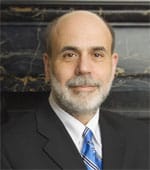By Gordon Platt, Antonio Guerrero and Anita Hawser
The Americas
ARGENTINA
Mercedes Marcó del Pont
Grade: D
Marcó del Pont has focused much of her efforts over the past year on imposing draconian foreign exchange restrictions. Controls began after last year’s reelection of center-left president Cristina Fernandez de Kirchner. Importers were forced to match imports with equal amounts of exports. The central bank has banned dollar savings, traditionally used by Argentineans to hedge against inflation and devaluation cycles, and mandated that all real-estate transactions be paid in pesos. The black market for foreign currency has consolidated. The nation’s economy, which had been growing strongly for nine years, has experienced a slowdown that began with a contraction in May.
BRAZIL

Alexandre Tombini
Grade: B
When Tombini stepped up to the helm, he vowed to put inflation under control and began by boosting the benchmark Selic rate. Inflation still ended 2011 at a high 6.5%. Since then, his anti-inflation drive has been sidetracked by an economic slowdown. Brazil ended 2011 with a relatively meager GDP growth rate of 2.7%, but Tombini says the economy is on track for 4% growth this year. The central bank has systematically cut the Selic rate since August 2011. Tombini continues to promote what he calls “macroprudent policies,” and foreign investors are responding positively. Record investment inflows are helping to cover a widening current-account deficit.
CANADA

Mark Carney
Grade: A
Carney’s skill in running Canada’s central bank has won him an additional role that is sure to test his talent. He is chairman of the Financial Stability Board, which was created by the Group of 20 to oversee global financial reform. Carney wants tough regulations for global lenders. Historically, banks that are well capitalized have been rewarded, he says. At a time when most central banks are considering additional monetary easing, Carney is warning that the Bank of Canada’s next move could be a rate hike to restrain a financial system “that’s firing on all cylinders.” Meanwhile, Canada is home to seven banks that rate among the safest in the world.
CHILE
Rodrigo Vergara
Grade: B+
Vergara may be a newcomer—he took charge of the central bank in December 2010—but he has hit the ground running. Appointed by President Sebastian Piñera, Chile’s first center-right leader since the return to democracy in 1990, Vergara has good credentials. The Harvard-trained economist has been on the central bank’s board since 2009. Weeks after he took office, Vergara ordered an interest rate cut that raised eyebrows. However, it now appears the move was the boost the economy needed to counter the fallout from global financial woes. Since then, the economy has been growing strongly, and inflation is at record lows. GDP growth is expected to be 4%–5% this year.
COLOMBIA
José Darío Uribe Escobar
Grade: B
Colombia’s central bank governor is facing calls for greater intervention in the foreign exchange market and an interest rate cut. Uribe, who has held the post since 2005, is moving cautiously. Exporters complain that a strong peso is making their products less competitive, while high interest rates are thwarting domestic demand. President Juan Manuel Santos and his cabinet have been among the most vocal supporters of interest rate cuts to tackle the country’s economic slowdown. The central bank has begun introducing gradual rate reductions that could spark growth going forward, but it has reduced its GDP growth forecast for 2012 to 3%–5% from 4%–6%.
ECUADOR
Pedro Delgado
Grade: D
Delgado is a cousin of Ecuador’s president Rafael Correa, whose left-wing administration uses the central bank for political gain. Delgado has been in the international spotlight this year, after members of the National Assembly supported US claims that Correa is allegedly using the central bank to help the government of Iran sidestep international financial sanctions. The US has warned of potential sanctions against Ecuador, as the country prepares to import Iranian oil. Ecuador has tapped its public pension fund and received loans from China to finance its deficit, as it prepares to return to international debt markets following defaults in 2008 and 2009. Meanwhile, the central bank is repatriating $1.1 billion in reserves held abroad to fund domestic projects.
MEXICO
Agustin Carstens
Grade: B+
Former finance minister Carstens became central bank governor in 2010. Mexico’s economy had just posted a 6.5% decline the year before. He implemented prudent macroeconomic policies that helped the country avoid further contagion from abroad. The economy is on track to grow about 4% this year, despite the economic slowdown in the US, which purchases 80% of Mexico’s exports, and the debt crisis in Europe. Carstens says current policies could foster growth of 7% annually in the future. Foreign direct investment is slated to reach $20 billion this year, as investors are encouraged by the economic turnaround. Given his success, Carstens is expected to remain at the central bank when president-elect Enrique Peña Nieto takes office in December.
PERU
Julio Velarde Flores
Grade: B
Velarde’s confirmation as central bank chief by president Ollanta Humala helped ease the business community’s concerns over the new administration’s socialist platform. Velarde, a former World Bank adviser, has been known for his prudent policies. Since taking office, Peru’s economy has been strong, despite a drop in global copper prices and a slowdown in China, the main market for Peruvian exports. Velarde predicts the economy will grow by 5.8% this year, and 6.2% in 2013. Meanwhile, he is also staving off demands for greater flexibility in the bank’s monetary policy, contending that strong domestic demand means that no monetary stimulus is necessary for now.
United States

Ben Bernanke
Grade: B
Bernanke has been harshly criticized for “printing money” at a pace that threatens to create hyperinflation. But inflation remains below target, and the US economy is far from overheating. Many pundits have queried where the economy would be today had the Federal Reserve not embarked on two huge bond-buying programs and Operation Twist, which has kept long-term rates near record lows even as China has stopped buying US bonds. But US Treasury securities remain a safe haven, and the dollar has not been destroyed. The housing market is finally showing signs of recovery, and the unemployment rate is a lagging indicator. A little more inflation could be a good thing if it gets the economic juices flowing again.




